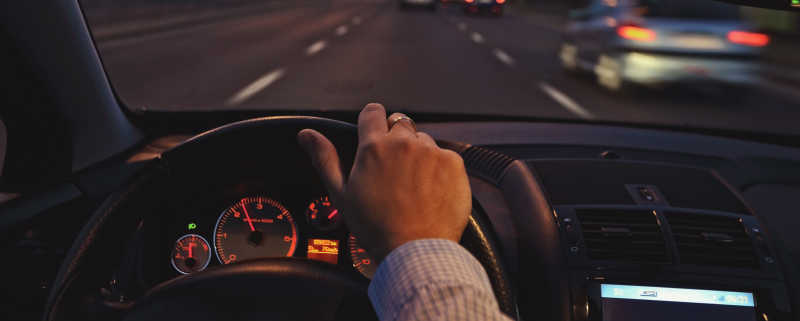Slip-and-Fall Accident Attorney in Plantation, Florida
A slip-and-fall accident on someone else’s premises can lead to serious injury, including broken bones, a traumatic brain injury (TBI), and sometimes even death. The Centers for Disease Control and Prevention (CDC) reports that 800,000 people are admitted each year to hospitals after falls, most often because of a head injury or hip fracture. Alarmingly, the CDC also reports that the death rate from falls is rising annually and is expected to reach seven deaths every hour by 2030.
If you’re shopping in a retail establishment, slip on a wet or uneven surface, and injure yourself, the owner-operator may well be responsible under the legal concept of premises liability. Even if you’re at a friend’s home for dinner and you slip and fall into an injury, your friend may be liable as the owner of the property.
Slip-and-fall accidents can lead to claims against the owner or operator’s property or liability insurance, and in some cases, they lead to personal injury lawsuits. You will need an experienced attorney to assess the situation and advise you of the proper course of action.
If you or a loved one has suffered an injury from a slip-and-fall accident in or around Plantation, Florida, or nearby in Miami, Hollywood, Fort Lauderdale, or Pembroke Pines, contact the Law Offices of Garry F. Connell, PA. With more than 12 years of experience working with personal injury claims, I can meet with you and help you obtain the compensation you deserve for the slip-and-fall accident that caused you harm.
Premises Liability in Florida
An owner and/or operator of a property is responsible for keeping the premises free from dangers that can cause harm to others. This is what is called premises liability. Specifically, they have a “duty of care” to prevent others from suffering an injury while on their property.
This generally requires that they fix any obstacle or dangerous condition or warn visitors of the dangerous condition. That is why you will see “wet floor” signs posted in office or retail buildings. The owner-operator is fulfilling their “duty of care.”
When it comes to slip-and-fall accidents, wet floors certainly play a part, as do loose carpets or objects in a walkway or aisle that can cause one to fall backward. Stairs are also a leading cause of falls. Sidewalks and parking lots that are icy are also big contributors.
While the first avenue of compensation to cover your injuries is to file a claim with the property owner-operator’s liability insurance, it is also possible to file a personal injury lawsuit. A personal injury lawsuit, however, has a statute of limitations of four years from the date of the accident. After that, the court is not likely to honor your filing.
Determining Liability
To prove liability, you must show that someone was negligent in regard to their duty of care in maintaining safe premises. This is often the homeowner, property owner, or business owner on whose property you slipped, fell, and suffered an injury.
However, it might also be a government agency that failed to maintain public venues, such as keeping parks or sidewalks free from icy or dangerous conditions. However, a business owner is usually considered responsible for the sidewalk leading to the building’s entrance.
There is also the factor of what you did that could have contributed to your injury. For instance, if you paid little heed to a “wet floor” sign, walked too fast, and fell, you could be held partially or even fully responsible.
It all boils down to the principle of negligence. Was the property owner negligent in providing safe conditions, or were you also negligent for doing something a reasonable person might have avoided doing, such as waltzing carefree over a wet surface?
Florida recognizes the legal standard of pure comparative negligence, which means that you can be up to 99 percent at fault and still receive 1 percent compensation from the other party.
Here’s how comparative negligence works: When you file a claim with an insurance company or file a lawsuit in court, the insurance claims adjusters or the jury at trial will assess each party’s responsibility (or negligence). If you’re assigned 30 percent of the fault, and the settlement or jury award is $20,000, you would receive 70 percent of that amount, or $14,000. Your 30 percent will be deducted.
Proving Negligence
Under the law, a property owner or operator’s reasonability is contingent upon the classification of the person injured. The classifications are invitees, licensees, and trespassers. Invitees are customers in the owner’s store or guests in their homes. To this group, the owner owes the highest standard of care.
Licensees are people on another’s property for their own benefits, such as utility workers digging to access a water or electric line or salespersons knocking on the door. The owner must warn them of any dangers, but needn’t have fixed the problems yet. Trespassers have no rights unless the owner deliberately injures them.
If you do file a personal injury lawsuit, you will have to show that:
A dangerous condition existed on the premises you were on.
The party in possession or control of the premises knew or should have known about the condition.
The party in possession failed to use ordinary care to remove, remedy, or warn of the danger.
As a result, you, the plaintiff, were injured.
Slip & Fall Accidents Attorney in Plantation, Florida
If you’re injured in a slip-and-fall accident on someone else’s premises, contact me immediately and let me sort through the details and assess liability. We can develop a path forward to obtain just compensation for your injuries. There is never any fee until I win your compensation for you. Call the Law Offices of Garry F. Connell, PA today.
